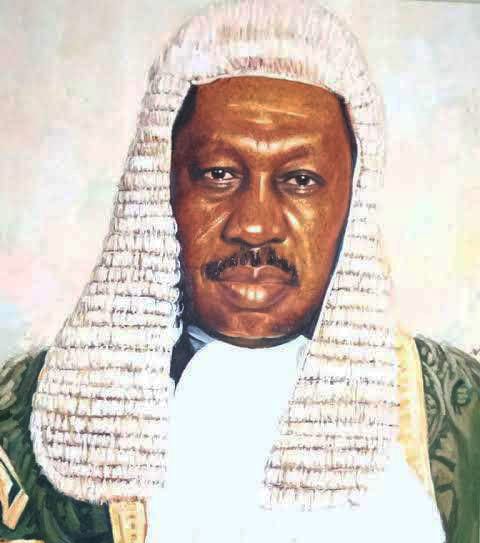By Kachi Okezie, Esq
The news of the passing of Hon. Justice Mohammed Lawal Uwais GCON, earlier today at the age of 88, casts a long shadow over Nigeria. Justice Uwais, a towering figure in the Nigerian judiciary, served as the Chief Justice of Nigeria from 1995 to 2006, leaving an indelible mark on the Supreme Court bench as a jurist par excellence. Yet, as we mourn his departure, his most profound contribution to Nigeria’s democratic future remains largely unfulfilled, a poignant reminder of the nation’s struggle with genuine electoral reform.
Justice Uwais’s judicial career was characterised by integrity, erudition, and an unwavering commitment to the rule of law. He presided over a critical period in Nigeria’s democratic transition, navigating complex legal challenges with a steady hand. His judgments, often insightful and meticulously reasoned, helped to shape jurisprudence and deepen the understanding of constitutional principles.
However, it was in his post-retirement role that Justice Uwais truly revealed his visionary leadership. Recognizing the systemic flaws that plagued Nigeria’s electoral landscape, he accepted the challenge of chairing the Electoral Reform Committee (ERC) in 2007. The “Uwais Commission,” as it came to be known, meticulously examined the nation’s electoral process, conducting extensive consultations and drawing on global best practices. The resulting report, submitted in December 2008, was a blueprint for credible elections in Nigeria, offering far-reaching recommendations designed to enhance the independence of the electoral body, ensure transparency, and curb electoral malpractices.
Among its many recommendations, the Uwais Commission proposed crucial changes such as establishing an Electoral Offences Commission and Tribunal, granting full financial and administrative autonomy to the Independent National Electoral Commission (INEC), and even suggesting a role for the judiciary in the appointment of the INEC Chairman to insulate the process from executive interference. These were not mere academic proposals; they were practical, actionable steps intended to address the root causes of Nigeria’s perennial electoral crises, which have historically undermined public trust and threatened national stability.
Sadly, despite the widespread acclaim and public demand for its implementation, a significant portion of the Uwais Commission’s recommendations has remained on paper. While some reforms have been partially adopted (including those in the current pipeline of Constitutional amendments), the core tenets aimed at fundamentally repurposing the power dynamics and ensuring genuine independence for electoral institutions have largely been neglected. This non-implementation has been a consistent point of contention, especially after subsequent elections that continued to be marred by disputes, allegations of irregularities, and a lingering sense of public dissatisfaction
The timing of Justice Uwais’s demise, coming amidst renewed debates and concerns about the integrity of Nigeria’s electoral process, underscores the urgency of his unfinished business. His life was a testament to the pursuit of justice and good governance. His legacy, however, will forever be intertwined with the unfulfilled promise of the reforms he so passionately advocated.
As we pay tribute to the memory of this distinguished jurist, the most fitting eulogy would not be mere words, but decisive action. Let the passing of Chief Justice Mohammed Lawal Uwais serve as a potent catalyst for renewed commitment to credible elections in Nigeria. Let the nation finally honour his enduring vision by swiftly and comprehensively implementing the recommendations of the Uwais Commission; if not in life, then in the aftermath of his demise. Let his call for true electoral reform be answered, ushering in an era of free, fair, and transparent elections that truly reflect the will of the Nigerian people. Only then can we truly say that Justice Uwais’s profound impact on our democracy has been fully realised.
Kachi Okezie, Esq is a legal practitioner, consultant, and chartered mediator.





